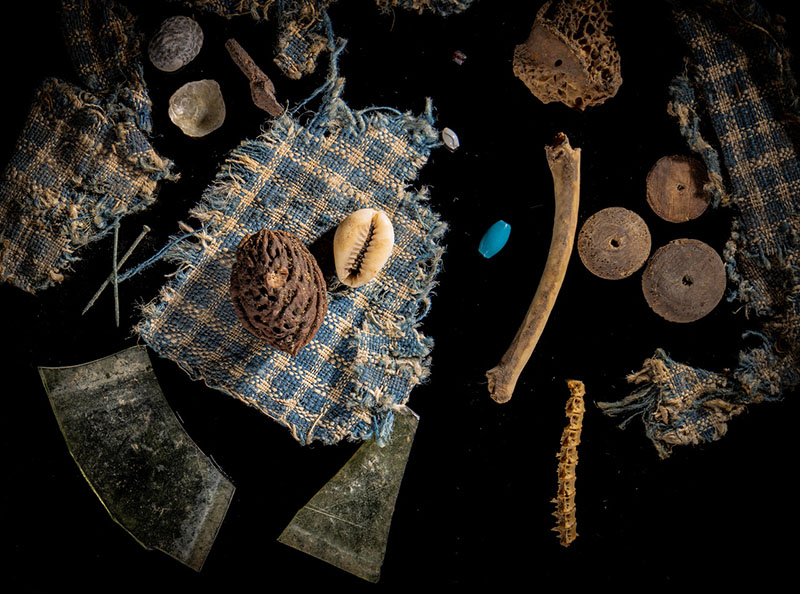Nkisi
Home > Folk Art, Instruments, and Tools > Nkisi

| Maker | Unknown |
| Date of Creation | 18th Century |
| Location | Newport, Rhode Island |
| Materials | Three fabric fragments; 3 fragments of Chinese import ceramics; 3 beads; 3 wooden buttons; 1 worked cowrie shell; 29 iron pins; 15 glass shards |
| Institution | Newport Historical Society |
| Credit Line | N/A |
| Accession Number | 2005.12 |
| Photo Credit | Courtesy Mystic Seaport Museum, Photographer Joe Michael |
In 2005, an assemblage of unexpected materials was uncovered under the attic floorboards of Newport, RI’s c. 1697 Wanton-Lyman Hazard-House, owned and operated by the Newport Historical Society. A worked cowrie shell, iron pins, colored glass shards, and beads (among other items) were found wrapped in fragments of checkered fabric. Combined, these objects formed a Nkisi, a spiritual object linked to West-Central African culture that is imbued with protective powers to heal and defend, often buried near entrances. This Nkisi was crafted and secreted away by an unidentified African who was enslaved in the household more than 200 years earlier. The Nkisi was an undisputable evocation of their African heritage and spiritual beliefs. To date, this remains the only Nkisi found in New England. It was recovered from the oldest surviving house in Newport and evokes the underrecognized stories of Newport’s enslaved Africans, whose stolen labor and lives were foundational to a region that refused to acknowledge their humanity. Research has revealed that Briston, Jenny, Casen, and Cardardo were enslaved by the Howard family in the house in the 18th century. They likely slept in the house’s attic (where the Nkisi was recovered), a space that was largely untouched throughout the home’s many expansions and its late 1920s restoration. While the fates of Briston, Jenny, and Casen are currently unknown, Cardardo was manumitted in 1775 by the Wanton family and went on to serve in the Continental Army.
